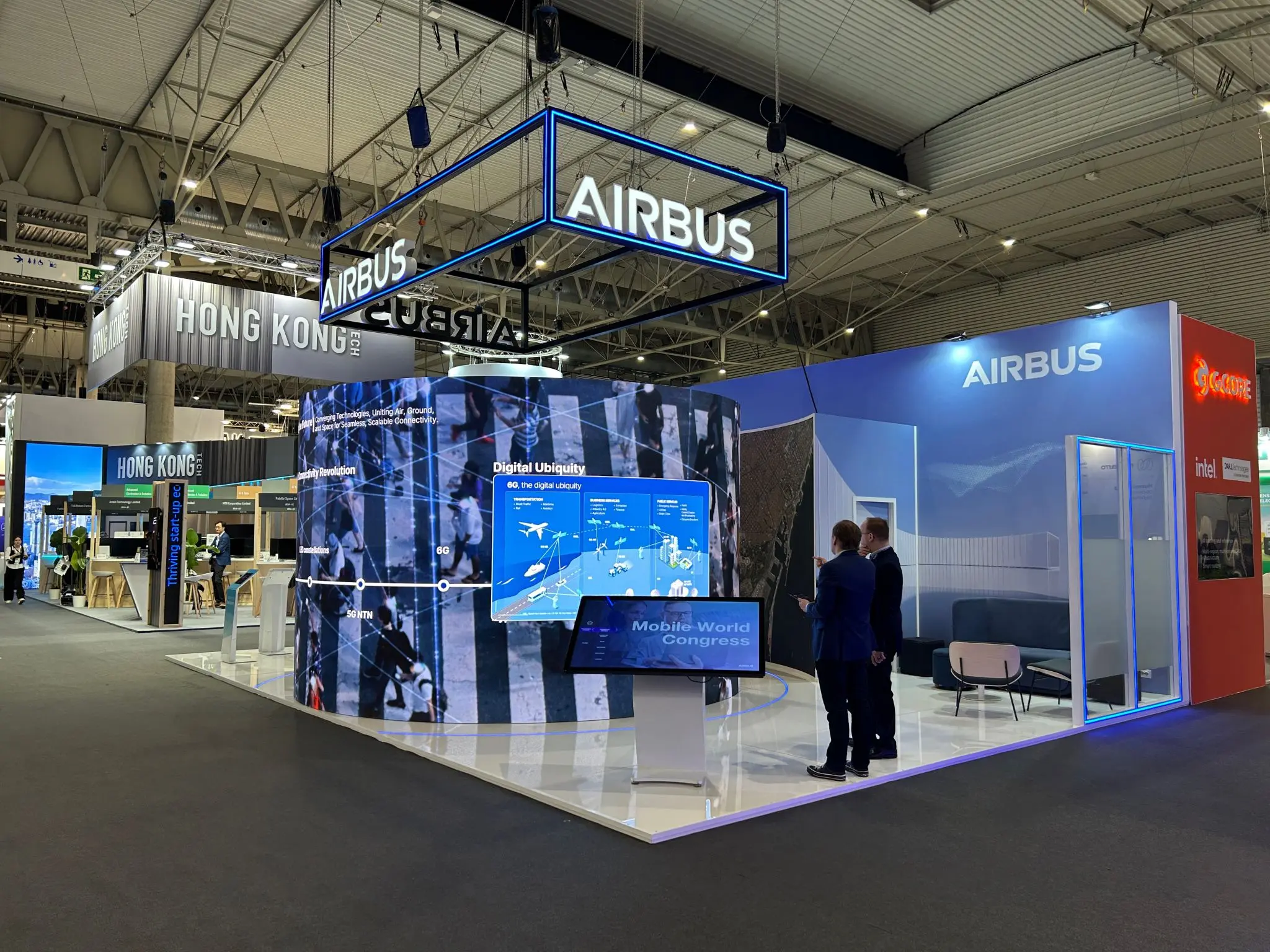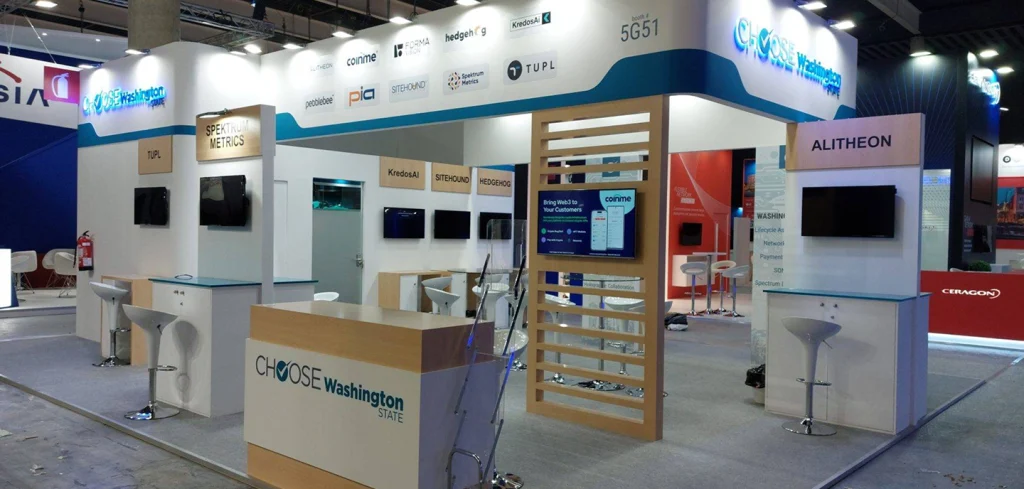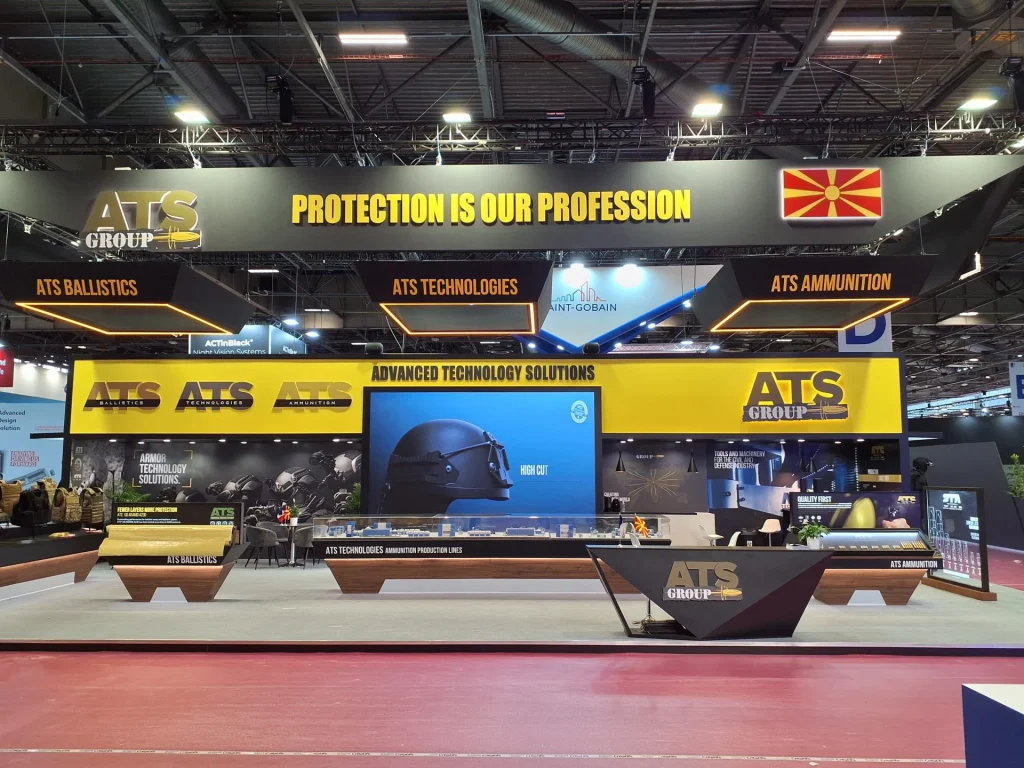
Why is the Circular Economy Reshaping Trade Show Exhibits?
As sustainability becomes a top priority, UK exhibitors at ExCeL London, NEC Birmingham, and Olympia London are embracing circular economy principles to reduce waste, lower costs, and create more sustainable trade show booths. By designing exhibits that prioritize reuse, recycling, and minimal environmental impact, brands can demonstrate their commitment to sustainability while improving efficiency.
How the Circular Economy is Transforming Trade Show Booths
1. Modular Booth Designs for Reusability and Adaptability
One of the key principles of the circular economy is eliminating single-use booth components. Exhibitors are now using:
• Modular booth systems that can be reconfigured for different events.
• Interchangeable panels and structures to adapt to various floor plans.
• Lightweight, reusable materials that reduce transportation emissions.
Trade show exhibit design companies are focusing on scalable, adaptable booth solutions that maximize longevity and minimize waste.
2. Eco-Friendly Materials and Sustainable Sourcing
Sourcing sustainable materials is essential for reducing the environmental footprint of trade show exhibits. UK exhibitors are integrating:
• Recycled aluminum frames instead of traditional metal structures.
• FSC-certified wood and biodegradable textiles for displays.
• Water-based, non-toxic paints and adhesives for branding.
Custom exhibit builders are now prioritizing responsibly sourced materials to align with corporate sustainability goals.
3. Zero-Waste Exhibit Strategies for Trade Show Sustainability
Waste reduction is a major concern in trade shows, where large quantities of materials are often discarded after a single event. Exhibitors are tackling this issue by:
• Using digital signage and interactive screens instead of printed brochures.
• Designing booths with dismantling and recycling in mind.
• Partnering with circular economy specialists to repurpose booth components.
Trade booth design companies are now offering zero-waste exhibit planning services to help brands minimize their event footprint.
4. Rental and Shared Exhibit Programs for Cost-Effective Sustainability
Rather than building new booths for every trade show, exhibitors are opting for rental and shared exhibit models. These programs allow brands to:
• Reduce costs by sharing modular booth structures.
• Limit waste by repurposing existing trade show assets.
• Maintain high-quality branding without excessive resource consumption.
Exhibition booth builders are expanding their sustainable exhibit rental programs to support circular economy principles.
5. Energy-Efficient Booth Technologies
Sustainable trade show booths also focus on reducing energy consumption through smart technologies such as:
• LED lighting systems that use 80% less energy than traditional lights.
• Solar-powered charging stations for interactive displays.
• AI-driven energy management systems that optimize power usage.
Trade show exhibit design companies are integrating energy-efficient solutions to create low-impact, high-performance trade show booths.
The Future of Circular Economy Trade Show Booths:
Emerging innovations in sustainable exhibiting will include:
• Biodegradable booth structures that naturally decompose after use.
• Blockchain-powered material tracking to verify sustainability claims.
• AI-driven exhibit lifecycle management that optimizes reuse and recycling.
UK exhibitors investing in circular economy strategies today will lead the way in responsible, cost-efficient, and sustainable trade show marketing.
Conclusion: The Circular Economy is the Future of Trade Show Design
As exhibitors seek to reduce waste, cut costs, and improve sustainability, circular economy principles will become a core component of booth design strategies. By prioritizing modular systems, eco-friendly materials, and zero-waste practices, UK exhibitors can align their brand with a more sustainable future.
Is Your Trade Show Booth Aligned with Circular Economy Principles?
Partner with a leading trade show exhibit design company to integrate sustainability, reusability, and energy efficiency into your trade show strategy.


 Global
Global USA
USA
